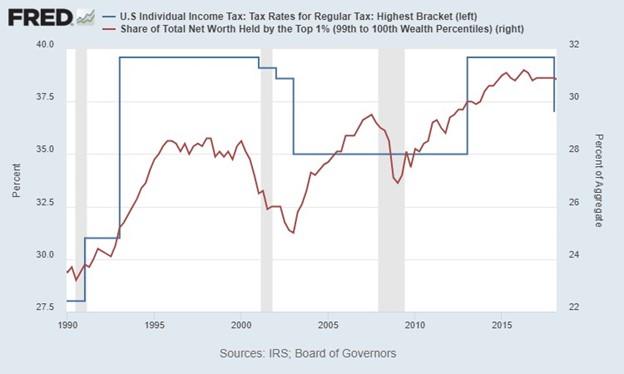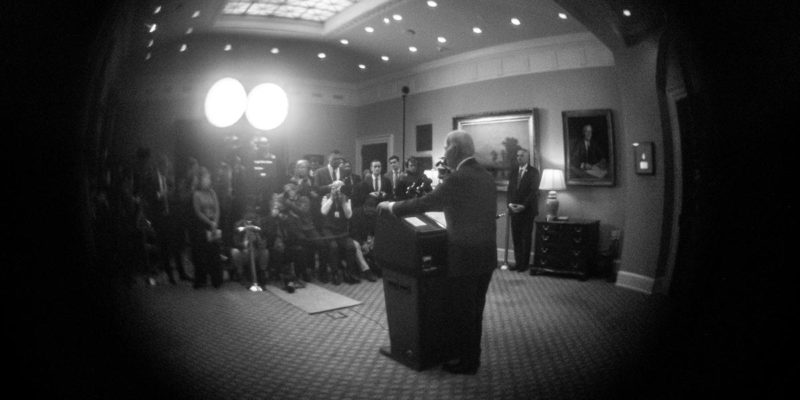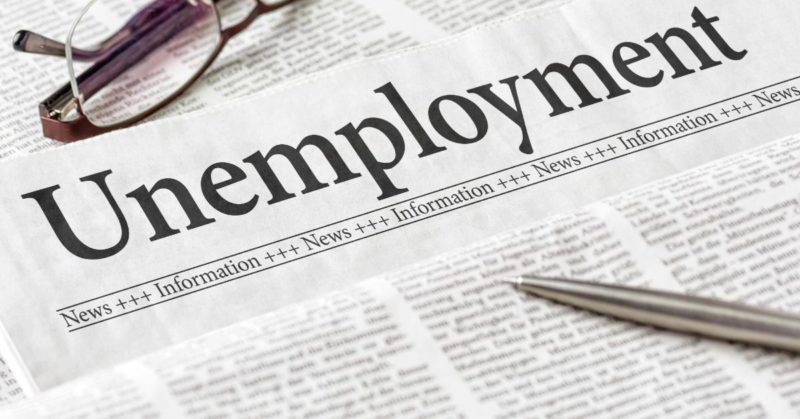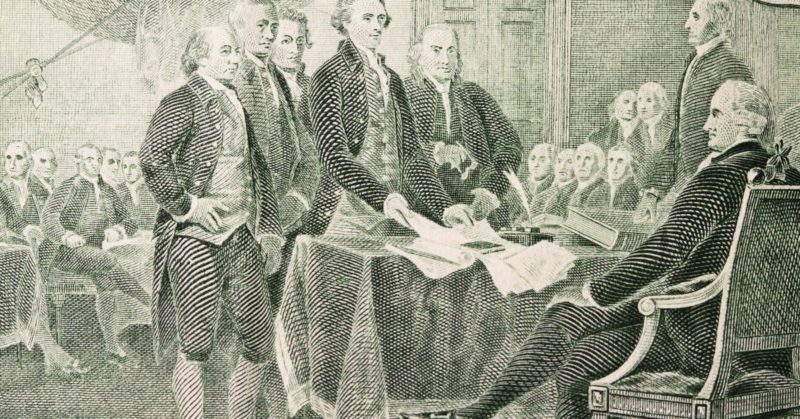Category Archive: 6b.) Mises.org
Argentina and the Watching World
Javier Milei has already been sworn in as the new president of Argentina and faces a Promethean challenge, having inherited a country riddled with debt and inflation. Balancing the books is going to be his priority before he can implement most of his innovative ideas, and that is going to cause temporary pain as he has clearly admitted. He does not seem keen on wasting time though, and in his first weeks we have seen a historic revocation of more...
Read More »
Read More »
A Texas-American War?
On this episode of Radio Rothbard, Ryan McMaken and Tho Bishop look at the growing tensions between the State of Texas and the Biden administration. The two evaluate the situation today, what we should expect in the near future, and what its lasting ramifications could be for the regime.
Discussed on the Show
"It's Biden vs. Texas, and Texas Is Right" by Ryan McMaken: Mises.org/RR_171_A
"The Establishment Is Unmasking...
Read More »
Read More »
Are Bankruptcies of Some US States in the Future?
Bankruptcy is a developing twenty-first century theme in America. We see bankruptcy in federal government policy and spending, many corporate boardroom decisions, nonprofit and religious groups’ overspending and arrogance, individuals, some United States cities and counties, and the territory of Puerto Rico. The federal bankruptcy law consisting of Chapters 7, 9, 11, and 13 allow bankruptcy filings for local governments, individuals, nonprofit...
Read More »
Read More »
Four Charts That Show Cantillon Effects
Murray Rothbard called Richard Cantillon the “father of modern economics.” While that title is often given to Adam Smith, Rothbard suggested that all the good things in Smith were first discovered by Cantillon or other pre-Smithian economists and that virtually all of Smith’s original ideas were “a significant deterioration of economic thought.”
One of Cantillon’s greatest insights involved the uneven effects of monetary expansion. New money enters...
Read More »
Read More »
An Open Letter to Walter E. Block
Breaking up with a person you have known for more than thirty years, with whom you have participated in countless conferences and co-authored a couple of articles, even if only in the somewhat distant past, is nothing done lightly. It is even harder, if one shares with this person a common standing as a public intellectual and both our names are mentioned frequently in one breath as prominent students of the same teacher, Murray N. Rothbard, and as...
Read More »
Read More »
Navigating the Complexity of Climate Change: A Closer Look at the Scientific Method and Its Challenges
The physical sciences have greatly advanced knowledge by elucidating the workings of simple phenomena. In a simple phenomenon, we have a limited number of important variables, all of which are identifiable and measurable. This allows us to run a scientific experiment. In such an experiment, we hold all other variables constant and examine the influence of one variable on the phenomenon. We can therefore measure this variable’s direction and how...
Read More »
Read More »
Secession’s Opponents Embrace Colonialism and “Enlightened” Central Governments
The idea of secession for some regions of the United States—sometimes simplistically called "national divorce"—has increasingly been mentioned as a way to deal with the apparent growing divide between what are crudely called "red states" and "blue states." Polls suggest that perhaps a third of the American population "indicated a 'willingness to secede'"
Vehement opposition to the idea remains plentiful,...
Read More »
Read More »
Biden’s Absurd New Economic Messaging Strategy
After spending months trying to sell his economic agenda under the banner of “Bidenomics,” the president’s team is frustrated. Voters aren’t believing them when they say that the economy is doing excellent and that Joe Biden deserves the credit.
Rather than make a meaningful attempt to understand the American people’s economic pain and recognize why it isn’t being detected by traditional economic indicators, the president’s team has settled on a...
Read More »
Read More »
Does Government Spending and Money Expansion Create New Wealth or Destroy It?
Government efforts to expand “aggregate demand” involve new spending and money creation. In reality, these activities destroy wealth in the name of expanding it.
Original Article: Does Government Spending and Money Expansion Create New Wealth or Destroy It?
Read More »
Read More »
The War on Producers and Entrepreneurs Is Based on False Notions of Profits
Since Adam Smith, economic thinkers have failed to understand that profits in a market economy are not extractions of wealth from laborers. In truth, profits lead to higher wages and higher living standards for those workers.
Original Article: The War on Producers and Entrepreneurs Is Based on False Notions of Profits
Read More »
Read More »
Reflections on the Libertarian Role in Society
As the recent election of Javier Milei in Argentina shows us, there still is a place in the political world for libertarian thinking. Liberty is a goal still worth pursuing.
Original Article: Reflections on the Libertarian Role in Society
Read More »
Read More »
What is Money? Who Controls Money?
What Is Money? Who Controls It?
Gold is money! Silver is money! Everything else is credit!
J. P. Morgan famously said this in his testimony before Congress in 1912: “Gold is money. Everything else is credit.”
J. P. Morgan was the founder of JPMorgan Chase & Co., an American multinational financial services company headquartered in New York City. It is the largest bank in the United States and the world’s largest bank by market capitalization as...
Read More »
Read More »
Contra Krugman, Policies of Countering Unemployment Are Costly
When the economy goes into a recession, most economic commentators believe that the government and the central bank should take steps to counter the rise in unemployment. Some economists believe that lowering unemployment can be achieved without any cost, given that the unemployed workers are idle. According to Paul Krugman, “If you put 100,000 Americans to work right now digging ditches, it is not as if you are taking those 100,000 workers away...
Read More »
Read More »
US Foreign Policy Is a Far Cry from the Founders Intent
In July 2021, the Watson Institute of Public Affairs at Brown University reported that since September 11, 2001, 7,057 US military personnel have been killed in military operations in Iraq and Afghanistan alone. Civilian contractor deaths reached 8,000, although the institute admits this is an estimate considering many contractors were not US citizens, so some deaths went unreported. Finally, 30,177 US service members would commit suicide after...
Read More »
Read More »
Washington’s Planned Theft of Credit Card Benefits
Our vacation airline tickets in September were funded by accumulated miles on our Alaska Airlines credit card. While on vacation this summer, my brother-in-law graciously hosted eight of us for dinner. He tried to downplay the generous hospitality by saying he had just gotten his “cash back” award from his credit card company. The “cash back” credit card had accumulated a tidy sum of money, paying for a very nice dinner.
At home in Brookfield, a...
Read More »
Read More »
The December Jobs Report Is Mostly Bad News
The job market is still hanging on—but not nearly as well as the headline numbers and media pundits would have you believe.
Original Article: The December Jobs Report Is Mostly Bad News
Read More »
Read More »
The Government Is Making the Economy Appear Better than It Is
By borrowing money and “creating” new jobs, the government is creating the illusion of a strong economy. This does not end well.
Original Article: The Government Is Making the Economy Appear Better than It Is
Read More »
Read More »
The Decisive Driving Force to Victory for Javier Milei
Javier Milei has begun his presidency by taking action against much of Argentina’s vast welfare state. One hopes it is the beginning to a successful term in office.
Original Article: The Decisive Driving Force to Victory for Javier Milei
Read More »
Read More »
Can Classical Economics Explain the Approaching Fiscal Disaster?
There is a lack of buyers for US Treasury debt. Rating agencies have recently downgraded the US debt, and entitlement benefits’ “trust funds” will go into the red in a few years. The classical economists offer few answers to the depth of this problem.
Original Article: Can Classical Economics Explain the Approaching Fiscal Disaster?
Read More »
Read More »
Measure 110 and Property Rights
In this week's episode, we replay Mark's recent appearance on the Rob Taylor Report. Mark and Rob take a deep look at the practical impact of socialist ideology in Oregon when mixed with the partial "decriminalization" of all hard drugs in the state. The main issues they discuss are the lack of respect for private property rights, and woke government causing social chaos in Oregon; but, it's a lesson for everyone, everywhere....
Read More »
Read More »






























